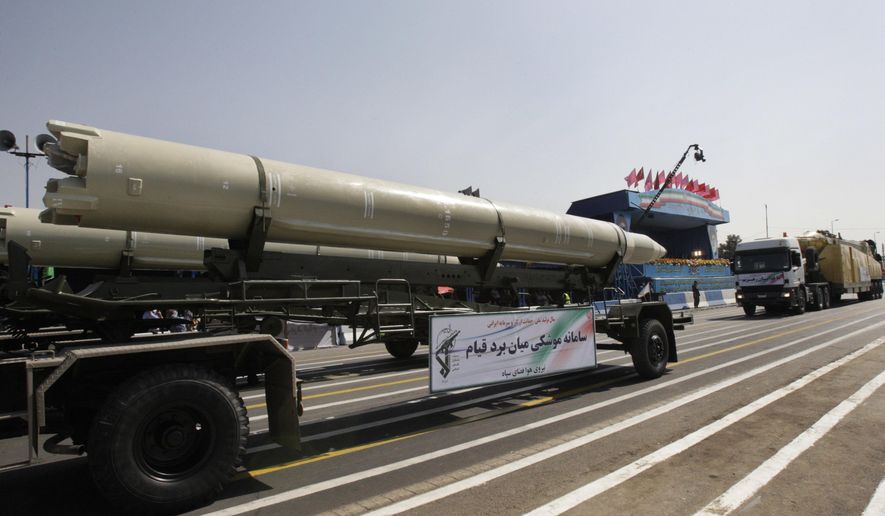The current ramping up of U.S. military posturing against Iran was triggered by U.S. intelligence that showed Tehran-backed militias in Iraq moving rockets to locations that could hit bases where American troops are positioned in the nation, according to sources familiar with the intelligence.
Trump administration officials have said the Pentagon’s bumping up of the deployment last week of a U.S. aircraft carrier and bomber group to the region was justified by intelligence on threats of a potentially imminent attack by Iran on U.S. interests in Iraq, but have provided no specific details publicly.
However, a report on Wednesday said Secretary of State Mike Pompeo’s surprise trip to Iraq earlier this month came after U.S. intelligence had picked up communications related to the movement of rockets in Iraq by Iran-backed militias there.
Mr. Pompeo told top Iraqi military officials during a sudden visit to Baghdad on May 7 that Iraqi forces needed to keep the Iran-backed militias in check, according to the report by Reuters, which cited two Iraqi security sources as saying the secretary of state warned that Washington would respond with force if the militias weren’t contained.
“The message from the Americans was clear. They wanted guarantees that Iraq would stop those groups threatening U.S. interests,” a senior Iraqi military source with knowledge of Pompeo’s trip said, according to the report. “They said if the U.S. were attacked on Iraqi soil, it would take action to defend itself without coordinating with Baghdad.”
The report could not be immediately verified Wednesday. Mr. Pompeo’s office did not respond to a request by The Washington Times for comment. Reuters cited a second Iraqi security source as saying communications intercepted by U.S. intelligence had shown that Iran-backed militias had “redeployed to take up suspicious positions, which the Americans considered provocations.”
QUIZ: Can you pass a U.S. state capitals test?
The report follows hand wringing in the international community over the current uptick in tension and mounting brinkmanship between Washington and Iran.
On Wednesday, the State Department ordered all nonessential U.S. government staff to leave Iraq, while both Germany and the Netherlands suspended their military assistance programs in the nation.
The sudden deployment of an American aircraft carrier and bomber task force to the Middle East last week, in concert with the one-year anniversary of Mr. Trump’s withdrawal from the 2015 Iran nuclear deal, has underscored the tensions, amid frustration from some U.S. allies.
A top British commander working within the current U.S.-lead coalition of forces in Syria and Iraq on Tuesday disputed the administration’s claims about intelligence, telling a news conference there has been “no increased threat” from Iranian proxies in Iraq or Syria.
The Pentagon later pushed back at the comments by British Maj. Gen. Chris Ghika, with U.S. Central Command spokesman Capt. Bill Urban asserting they had “run counter to the identified credible threats available to intelligence from U.S. and allies regarding Iranian backed forces in the region.”
• Guy Taylor can be reached at gtaylor@washingtontimes.com.




Please read our comment policy before commenting.